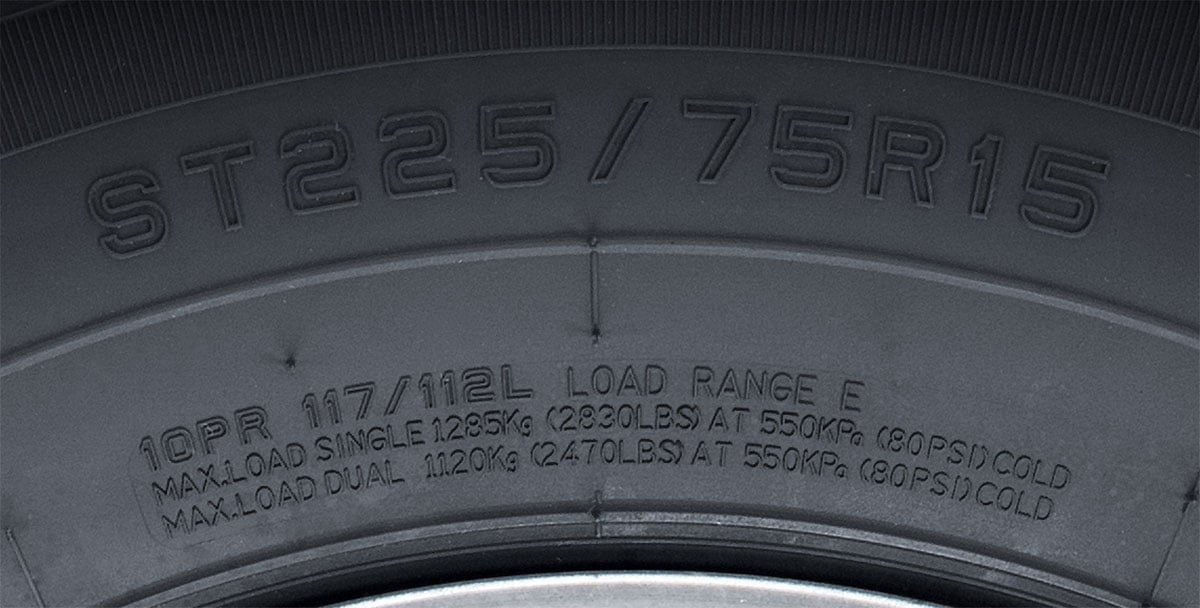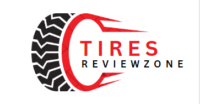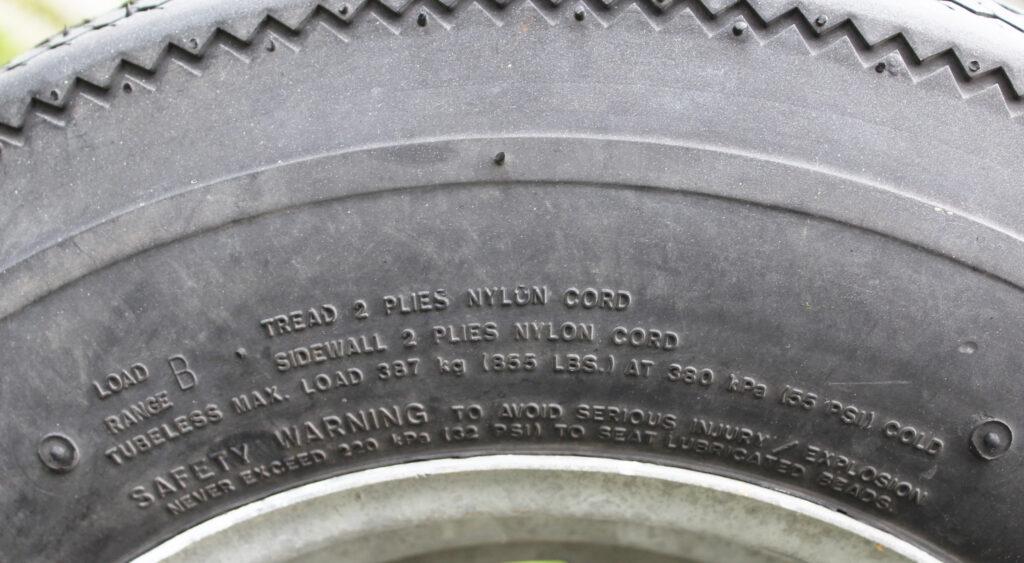Trailer tire pressure should be set according to the recommendations provided by the manufacturer. It is essential to maintain the recommended tire pressure to avoid tire damage or failure while towing.
Proper tire pressure is crucial for safety while towing. The recommended tire pressure can be found in the owner’s manual or on the tire sidewall. Always ensure that the tire pressure is checked and adjusted before every trip. Overinflated or underinflated tires can result in decreased fuel efficiency and poor handling.
It is also important to consider the weight of the loaded trailer when setting the tire pressure. In addition, regularly inspect the tires for any signs of damage or wear and replace them if necessary. Following these guidelines can help to ensure a safe and enjoyable towing experience.

Credit: www.lesschwab.com
The Importance Of Maintaining Correct Trailer Tire Pressure
Trailer Tire Pressure Recommendations
Have you ever wondered why maintaining the correct trailer tire pressure is so important? While many people overlook this crucial aspect of trailer maintenance, having the right tire pressure is essential for both safety and performance. In this post, we’ll explore the reasons why maintaining correct trailer tire pressure matters and the impact that incorrect pressure can have on your safety and performance.
Reasons Why Maintaining Correct Trailer Tire Pressure Is Important
- Improved fuel economy: Properly inflated tires reduce rolling resistance, which means you use less fuel to tow your trailer.
- Increased tire longevity: Overinflated or underinflated tires wear unevenly, which can shorten their lifespan. Maintaining the right tire pressure helps your tires last longer.
- Enhanced stability and handling: The correct inflation pressure gives your trailer good stability and helps it handle better.
- Lower risk of a tire blowout: When your trailer tires are overinflated or underinflated, you run a higher risk of a tire blowout, which can be dangerous.
The Impact Of Incorrect Tire Pressure On Trailer Safety And Performance
- Reduced braking capability: Incorrect tire pressure can increase stopping distance, making your trailer less safe to drive.
- Reduced towing capacity: Overloading your trailer can lead to excess heat in your tires, which can cause a blowout. Maintaining proper tire pressure ensures you don’t overload your trailer axles or exceed payload capacity.
- Reduced tire traction: Overinflated or underinflated tires can reduce their traction, leading to less control over your trailer.
Maintaining correct trailer tire pressure is critical for both your safety and the performance of your rig. Proper tire pressure enhances your fuel economy, increases tire longevity, improves stability and handling, and reduces the risk of tire blowouts. Incorrect tire pressure can impact braking capability, towing capacity, and tire traction.
Make sure to check your trailer tire pressure regularly to ensure you’re keeping yourself and others safe while on the road.
How To Check Trailer Tire Pressure
Trailer Tire Pressure Recommendations: How To Check Trailer Tire Pressure
Maintaining proper tire pressure in your trailer is crucial for both your safety and the longevity of the trailer. Overinflated or underinflated tires can compromise your trailer’s handling, increase wear and tear, and even lead to a blowout on the road.
We’ll go over the step-by-step instructions for checking your trailer’s tire pressure and the recommended tools for the task.
Step-By-Step Instructions For Checking Tire Pressure
Checking tire pressure is a simple task that every trailer owner should know how to do. Here are the steps to follow:
- Determine the required tire pressure: Refer to your trailer owner’s manual or the tire sidewall to determine the recommended tire pressure for your specific trailer and tires.
- Check the current tire pressure: Use a tire pressure gauge to check the current pressure of each tire. Press the gauge onto the tire’s valve stem and hold it in place until the pressure reading stabilizes.
- Compare the readings: Compare each tire’s pressure reading to the recommended pressure for your trailer. If the reading is lower than recommended, inflate the tire. If it’s higher, release some air until it reaches the recommended pressure.
- Repeat the process: Check all tires and adjust their pressure as necessary.
Recommended Tools For Checking Tire Pressure
To accurately check your trailer’s tire pressure, you’ll need a few essential tools:
- Tire pressure gauge: This tool measures the tire’s pressure accurately and quickly.
- Air compressor: An air compressor can be used to inflate the tire if it’s underinflated.
- Tire valve stem caps: These caps protect the tire’s valve stem and prevent air from escaping.
- Tire pressure monitoring system: This system consists of sensors attached to each tire that continuously monitor the tire pressure and alert you if it drops below a certain level.
By following these simple steps and using the recommended tools, you can ensure that your trailer’s tires are properly inflated, improving your safety on the road and prolonging the life of your trailer.
Factors To Consider When Determining Appropriate Trailer Tire Pressure
As a responsible trailer owner, ensuring that tire pressure is correct is a vital aspect of trailer maintenance. Appropriate tire pressure ensures safe operation and can assist with prolonging the service life of your trailer. However, determining the correct tire pressure for your trailer is not always as straightforward as one might think.
Here are some factors to consider when determining appropriate trailer tire pressure:
The Influence Of Trailer Weight On Tire Pressure
The weight of your trailer is crucial when it comes to determining tire pressure. Inflating your tires to the ideal pressure is contingent upon the maximum trailer weight capacity of your vehicle. Here are the key points to consider:
- The weight of your trailer plays an essential role in determining optimal tire pressure.
- It is best practice to determine the maximum weight capacity of your trailer and adjust tire pressure accordingly.
- Refer to your vehicle manual for suggestions on the best tire pressure for a particular trailer weight.
The Type And Size Of The Trailer
Another factor you should consider when determining the appropriate tire pressure is the type and size of your trailer. Some trailers have specific tire pressure recommendations, while others require a standard range. Here are the key points to consider:
- The recommended tire pressure for trailers can differ depending upon the type and size of the trailer being used.
- For example, a travel trailer or rv will need a unique tire pressure recommendation from a utility trailer, even if they have the same weight capacity.
- Check the manufacturer’s manual for accurate tire pressure recommendations for a specific trailer type.
The Type Of Load Being Carried
The type of load you are carrying on your trailer can also impact the appropriate tire pressure level. The tire pressure should correspond to the specific load type and size being carried, allowing for safe operation and optimal tire service life.
Here are the key points to consider:
- Always consider the type of load being placed on the trailer when determining the ideal tire pressure.
- A heavier load will require a higher tire pressure than a lighter load, and this is vital to maintaining safety on the road.
- In general, inflate your trailer tires to the maximum tire pressure if you are carrying a heavy load, but make sure not to exceed the maximum tire pressure indicated on the sidewall of the tire.
By considering these three critical factors, you can determine the appropriate tire pressure for your trailer and ensure safe travels on the road. Proper maintenance is crucial for the safety and longevity of both your trailer and vehicle, so don’t skimp on keeping your tires inflated to the recommended levels.
Recommended Trailer Tire Pressure
Trailer Tire Pressure Recommendations
As a trailer owner, you are responsible for maintaining your trailer in the best condition for your safety while driving and transporting goods. One important aspect to keep in mind is the tire pressure of your trailer. In this blog post, we will focus on recommended trailer tire pressure to help you make informed decisions regarding your trailer’s maintenance.
Recommended Tire Pressure For Various Trailer Types And Weights
It’s important to note that the recommended tire pressure for your trailer depends on the type and weight of your trailer. Always consult with the owner’s manual or speak to an expert to determine the specific recommended tire pressure for your trailer.
Below are general recommendations for various trailer types and weights:
Light-Duty Trailers
- Single-axle light-duty trailers: 50 psi (pounds per square inch)
- Tandem-axle light-duty trailers: 35 psi
Medium-Duty Trailers
- Single-axle medium-duty trailers: 65-75 psi
- Tandem-axle medium-duty trailers: 50 psi
Heavy-Duty Trailers
- Single-axle heavy-duty trailers: 100-110 psi
- Tandem-axle heavy-duty trailers: 75 psi
How To Find The Recommended Tire Pressure For Your Trailer
It’s always best to follow the manufacturer’s recommendations for your trailer’s tire pressure. Here are some steps you can take to determine the recommended tire pressure for your trailer:
- Check for a placard: Many trailers have a placard stating the recommended tire pressure placed on the trailer’s side or tongue.
- Check the owner’s manual: The owner’s manual is another source to determine the recommended tire pressure for your trailer. If you don’t have a manual, search for it online.
- Calculate the recommended tire pressure: You can calculate the recommended tire pressure by using a tire load rating chart and calculating the load capacity of your trailer.
By following these simple steps, you can find the recommended tire pressure for your trailer and ensure a safe and smooth journey.
Remember, maintaining the right tire pressure for your trailer is essential for a safer and more comfortable ride. Regularly monitor your tire pressure to avoid any unexpected tire failures or other issues on the road. Now that you know the recommended tire pressure for your trailer type and weight, you can take steps to ensure the optimal tire pressure for a smooth and successful ride.
Best Practices For Maintaining Correct Trailer Tire Pressure
Maintaining the correct tire pressure is essential to ensure the safety and durability of your trailer tires. In this section, we’ll go over some best practices for maintaining proper trailer tire pressure.
Tips For Maintaining Proper Tire Pressure
Here are some tips to keep in mind when it comes to maintaining proper tire pressure for your trailer:
- Always follow the manufacturer’s recommended tire pressure for your specific trailer and tire size. This information can typically be found in your owner’s manual or on the tire sidewall.
- Use a tire pressure gauge to regularly check your trailer’s tire pressure. It’s important to do this even if your trailer isn’t in use, as changes in temperature can cause fluctuations in tire pressure.
- Consider investing in a portable air compressor to easily inflate your trailer tires on the go.
- Store your trailer in a cool, dry place to prevent weather-related fluctuations in tire pressure.
How Often To Check And Adjust Tire Pressure
To maintain proper tire pressure for your trailer, it’s important to check and adjust it regularly. Here are some general guidelines:
- Check your trailer’s tire pressure at least once a month.
- Adjust tire pressure as needed based on changes in temperature and the amount of weight being carried in your trailer. Overloading your trailer can cause excess wear and tear on your tires and increase the risk of blowouts.
Common Mistakes To Avoid When Inflating Trailer Tires
When it comes to inflating your trailer tires, there are a few common mistakes to avoid:
- Overinflating or underinflating your trailer tires can cause uneven wear and tear and increase the risk of a blowout. Always use a tire pressure gauge and follow the manufacturer’s recommended tire pressure.
- Neglecting to check your tire pressure before a long trip can be dangerous. Make sure to check your tire pressure at least a day or two before you leave to allow time for any necessary adjustments.
- Failing to properly tighten the valve stem can lead to leaks or deflated tires. Be sure to tighten the valve stem cap securely.
By following these best practices for maintaining correct trailer tire pressure, you can help protect your investment and ensure a safe journey every time.
Frequently Asked Questions On Trailer Tire Pressure Recommendations
What Is The Recommended Tire Pressure For My Trailer?
The recommended tire pressure for your trailer depends on the weight of your trailer. Typically, it is recommended to keep the tire pressure between 50-60 psi, but you should refer to your vehicle owner’s manual for the exact tire pressure.
What Happens If I Overinflate My Trailer Tires?
Overinflating your trailer tires can cause the tire to wear out faster in the middle of the tread and can also make your ride quality stiffer. This also puts extra stress on your trailer’s suspension system and increases the risk of a blowout.
What Happens If I Underinflate My Trailer Tires?
Underinflating your trailer tires can cause the tire to wear out faster on the outer edges of the tread and can also negatively impact the handling of your trailer. This can also cause the tire to generate excessive heat, which can lead to a blowout.
How Often Should I Check My Trailer Tire Pressure?
It is recommended to check your trailer tire pressure every time you use your trailer. You should also check the tire pressure before going on a long trip or if your trailer has been sitting unused for an extended period of time.
Can I Use The Same Tire Pressure For My Trailer As I Do For My Vehicle?
No, you should not use the same tire pressure for your trailer as you do for your vehicle. The recommended tire pressure for your trailer depends on the weight of the trailer, and it is typically higher than the recommended tire pressure for your vehicle.
Always refer to your owner’s manual for the correct tire pressure.
Conclusion
Proper trailer tire pressure is essential to ensure a safe and smooth towing experience. As we have learned, the recommended tire pressure for your trailer depends on various factors such as the size of the tire, weight of the trailer, and the load it carries.
Following the tire manufacturer’s recommendations and regular inspections can help prevent tire wear, blowouts, and other complications on the road. Remember to check the tire pressure before each trip and adjust it as necessary. Investing in a tire pressure monitoring system can also help you stay on top of potential issues before they become costly problems.
By taking the time to understand and follow trailer tire pressure recommendations, you can ensure a safer, more efficient, and enjoyable towing experience.

